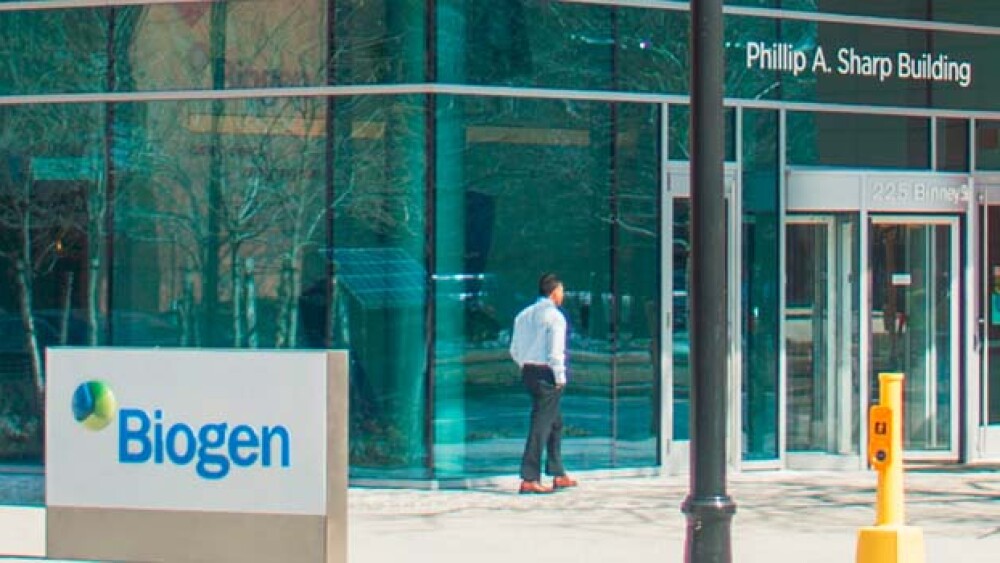Biogen signed an exclusive option deal with Tokyo-based TMS for TMS-007 and backup compounds.
Biogen, headquartered in Cambridge, Massachusetts, signed an exclusive option deal with Tokyo-based TMS for TMS-007 and backup compounds.
TMS-007 is a plasminogen activator associated with the breakdown of blood clots. It is also believed to inhibit local inflammation at the site of thrombosis. The combination gives the drug a shot at being best-in-class for treatment of acute ischemic stroke (AIS). The drug has shown an acceptable safety profile in a Phase I clinical trial and also reduced infarct volume, the among of dead tissue caused by the failure of blood supply, in rodent and primate models. It is currently being evaluated in a double-blind, placebo-controlled Phase II trial in Japan.
Biogen is paying $4 million upfront with an additional $18 million if Biogen exercises its option. TMS will be eligible for up to $335 million in development and commercialization milestones in addition to tiered royalties.
“Stroke represents a compelling opportunity that takes advantage of our deep expertise and capabilities in neuroscience as we seek to make a meaningful difference in patients’ lives,” said Michael Ehlers, Biogen’s executive vice president, Research and Development, in a statement. “Stroke impacts millions of people every year, and is a leading cause of death and long-term disability worldwide. TMS-007 complements our broader efforts in stroke, including our Phase III ready asset BIIB093 (intravenous glibenclamide), which targets prevention and treatment of edema in large hemispheric infarction, one of the most severe types of stroke. By growing our acute neurology portfolio, we aim to make new advances in a disease that in the past decades has seen limited therapeutic innovation.”
While much of the focus on Biogen has been about its ongoing Phase III clinical trial of aducanumab for Alzheimer’s disease, the company has been making a number of smaller investments such as this one to build up its neurology pipeline. It recently expanded an alliance with Ionis Pharmaceuticals to develop RNA-based drugs for brain diseases. It bought glibenclamide when it acquired New York-based Remedy Pharmaceuticals in 2017 for $120 million.
In March, Biogen bought PF-04958242 from Pfizer, a Phase IIb-ready AMPA receptor potentiator for cognitive impairment associated with schizophrenia. In November 2018, Biogen inked a global license and collaboration deal with Alkermes to develop and commercialize ALKS 8700, a novel, oral, monomethyl fumarate small drug molecule in Phase III to treat relapsing forms of multiple sclerosis (MS). In October 2017, Biogen and Japan-based Eisai Co expanded an existing deal to jointly develop and commercialize aducanumab for Alzheimer’s.
And in April 2017, the company licensed BMS-986168, a Phase II-ready drug for Alzheimer’s and progressive supranuclear palsy (PSP) from Bristol-Myers Squibb.
For some time, investors and analysts have wanted Biogen to make a large transformative deal, ranging from buying Ionis to acquiring Acadia. This is largely because much of the company’s revenues come from its drugs for MS, which are facing stiff competition. However, the company seems content, so far, of staying focused on marketing its MS drugs and Spinraza for spinal muscular atrophy (SMA), which went on the market in 2017, leaning heavily on its aducanumab program, and building up its pipeline for other neurological disorders.





